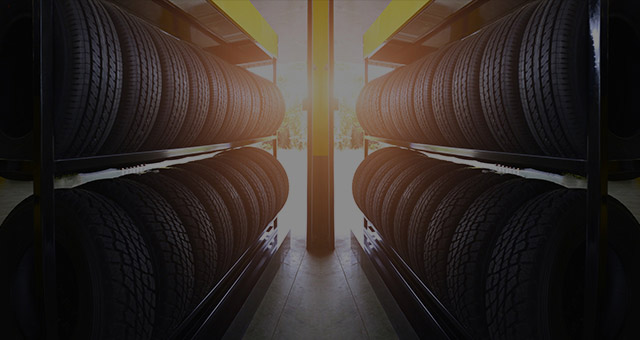Tire Solution: Comprehending Tire Stress Surveillance Systems
Understanding Tire Pressure Monitoring Systems (TPMS) is a vital facet of keeping ideal automobile performance and safety on the road. With developments in automobile technology, TPMS has come to be a conventional function in contemporary lorries, providing real-time information on tire pressure levels. Delving much deeper right into the complexities of TPMS, one can uncover the various parts that comprise this system and the significance of each in guaranteeing accurate surveillance. From direct to indirect TPMS systems, the landscape of tire pressure monitoring varies, each with its special set of considerations and advantages. Stay tuned to untangle the intricacies of TPMS, from maintenance pointers to the indisputable advantages of maintaining your tires correctly pumped up. tire shop morris.

Value of TPMS
The significance of Tire Pressure Monitoring Solutions (TPMS) hinges on their capacity to enhance vehicle safety and performance through real-time tracking of tire pressure levels. Preserving the appropriate tire pressure is vital for making certain optimum handling, stopping, and total safety and security of a lorry. TPMS gives drivers with immediate feedback on any underinflated or overinflated tires, enabling timely adjustments to be made.
Components of TPMS
Sensors are usually located in the tire valve stem or attached to the wheel assembly, where they measure tire pressure and send information to the control module. Some progressed TPMS versions additionally show the actual tire pressure analyses for each tire, supplying chauffeurs with real-time information to make sure ideal tire performance and safety. By keeping an eye on tire stress continuously, TPMS helps protect against mishaps, reduces tire wear, and boosts fuel efficiency, making it a crucial part for car safety and efficiency. mopar tire service specials.
Sorts Of TPMS

On the other hand, indirect TPMS depends on the automobile's wheel rate sensing units to keep track of tire pressure. This system finds underinflation by contrasting the rotational speeds of the wheels. Indirect TPMS is much less expensive than direct TPMS, as it utilizes existing sensors within the car.
While direct TPMS offers more accurate analyses, indirect TPMS is less complex in style and normally needs less maintenance. Both systems have their constraints and benefits, and the option between them frequently depends on factors such as price, lorry make, and individual preference. Understanding the differences in between these 2 types of TPMS can help vehicle owners make educated choices pertaining to tire upkeep and security.
TPMS Upkeep Tips
Efficient upkeep of TPMS is you can try here crucial for ensuring optimum efficiency and security of your car. On a regular basis evaluating the TPMS sensing units for any type of damages or deterioration is critical. Ensure that the sensing units are totally free and tidy from particles that can interfere with their functioning. Furthermore, it is recommended to examine the sensing unit batteries periodically and change them as needed to ensure exact analyses. Conduct routine checks on the tire pressure levels and contrast them with the TPMS analyses to guarantee they are regular. Rectify More Info the system following the manufacturer's guidelines if there are any type of disparities. Furthermore, throughout tire rotation or replacement, ensure that the TPMS components are handled carefully to stop any type of potential damage. Lastly, if the TPMS cautioning light illuminates on the control panel, deal with the concern without delay by checking the tire pressures and the total system for any kind of faults. By adhering to these upkeep ideas, you can extend the life-span of your TPMS and enhance the safety and security of your driving experience.
Advantages of Appropriate Tire Pressure
Maintaining correct tire pressure, as stressed in TPMS Upkeep Tips, is vital for reaping the many benefits associated with optimum tire pressure levels. Among the key benefits of keeping the correct tire pressure is boosted gas effectiveness. When tires are properly inflated, there is less rolling resistance, bring about much better gas economic climate. Furthermore, appropriate tire stress he said makes sure even tire wear, extending the life expectancy of the tires and advertising much safer driving conditions. With the ideal tire stress, cars additionally have much better handling and traction, especially in damaging weather condition conditions. This can boost overall driving efficiency and security for the driver and travelers. Keeping ideal tire pressure can contribute to a smoother and extra comfy trip by lowering vibrations and noise caused by underinflated tires. To conclude, the benefits of correct tire stress go beyond just tire longevity; they incorporate improved fuel effectiveness, enhanced security, much better car efficiency, and overall driving convenience.
Final Thought
To conclude, comprehending tire pressure surveillance systems (TPMS) is vital for maintaining ideal tire stress and guaranteeing automobile safety and security. By identifying the significance of TPMS, being familiar with its elements, understanding the various kinds offered, adhering to proper maintenance tips, and recognizing the benefits of keeping correct tire stress, drivers can improve their driving experience and lengthen the life-span of their tires. Appropriate tire stress is crucial to secure and efficient lorry operation.
